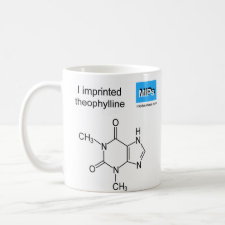
Authors: Ryu HS, Kim BS, Kim DS
Article Title: Synthesis and characterization of theophylline molecularly imprinted polymers.
Publication date: 2008
Journal: Polymer-Korea
Volume: 32
Issue: (2)
Page numbers: 138-142.
Alternative URL: http://www.cheric.org/PDF/PK/PK32/PK32-2-0138.pdf
Abstract: Molecularly imprinting technology is an effective method to prepare a synthetic material with a high selectivity to a target molecule. In this study, a molecularly imprinted polymer (MIP) was synthesized via UV-polymerization using theophylline and UV-curable polyester-acrylate resin as a template molecule and a crosslinker, respectively. To elucidate the effects of functional monomer type on the performance of the MIP, each MIP was synthesized using mathacrylic acid, acrylic acid, and acryl amide as functional monomers. Each MIP showed higher rebinding capacity to theophylline than its corresponding non-imprinted polymer (NIP). The MIP synthesized using mathacrylic acid as a functional monomer showed the highest rebinding capacity to theophylline. The selectivity of the MIP was investigated using a solution with caffeine having a very similar structure to theophylline. The binding performance of the MIP to theophylline decreased when distilled water was used as a solvent, which has more polarity than chloroform



Join the Society for Molecular Imprinting

New items RSS feed
Sign-up for e-mail updates:
Choose between receiving an occasional newsletter or more frequent e-mail alerts.
Click here to go to the sign-up page.
Is your name elemental or peptidic? Enter your name and find out by clicking either of the buttons below!
Other products you may like:
 MIPdatabase
MIPdatabase









